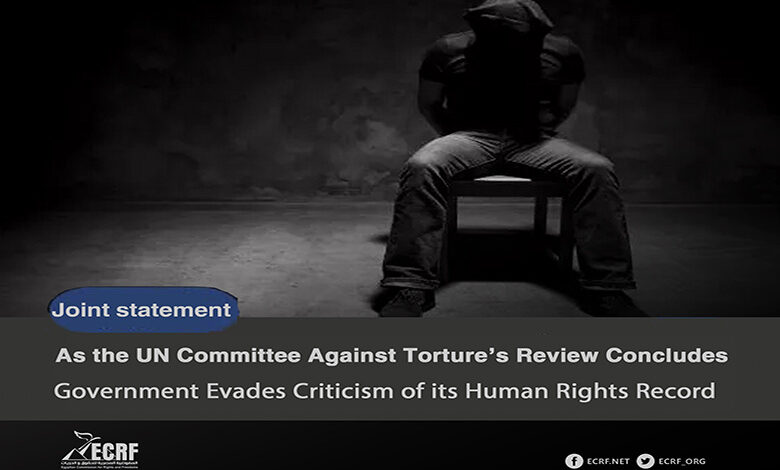Egypt: As the UN Committee Against Torture’s Review Concludes, Government Evades Criticism of its Human Rights Record

On 14 and 15 November, the United Nations Committee Against Torture (UNCAT) held its review of the Egyptian government’s record on torture and other cruel treatment at its 78th session. Although this was the first review attended by the Egyptian government in 20 years, government representatives did not engage in good faith and instead avoided providing concrete answers to questions and cases raised by members of the Committee.
The Committee asked the Egyptian government about reports of widespread arbitrary detention without charge and the absence of legal safeguards, as well as the use of prolonged pretrial detention, enforced disappearance, and torture, carried out by personnel from various security agencies. The Committee pointed to the practice of holding individuals in pretrial detention for periods exceeding the legal limit of two years by adding them to new, virtually identical cases. The Egyptian government was also asked by the Committee to provide information on ill-treatment and multiple suicide attempts at the newly established Badr Prison Complex, which the Egyptian government often cites as an indicator of alleged progress in its human rights record.
While addressing Egypt’s anti-terrorism legislation, the Committee asked the government to respond to a statement made by the UN Special Rapporteur on the Situation of Human Rights Defenders, expressing “dismay at the misuse of anti-terrorism and national security laws to criminalise the work of human rights defenders” in Egypt. The Committee has also noted that while over the past five years the Egyptian authorities have responded to 317 cases raised by the UN Working Group on Enforced and Involuntary Disappearances, the Committee has received reports of 4,000 enforced disappearances during the same period.
Although the Committee pointed in its previous report in 2017 to a “serious dissonance between law and practice” in Egypt, and although during this year’s session it repeatedly asked the Egyptian government to provide substantial information and data, the responses of the Egyptian delegation centered on reciting alleged improvement in Egyptian legislation. The Egyptian delegation has also made false statements, including by asserting that there is no enforced disappearance in Egypt, and that cases of torture and deaths in detention are thoroughly investigated by what they claim to be independent authorities. In doing so, the Egyptian government is maintaining its denial of the systematic nature of Egypt’s human rights crisis and continuing to exhibit a lack of genuine intent to constructively engage with the Committee and achieve any tangible progress on the human rights situation in Egypt.
Ahead of this year’s review session, our coalition of Egyptian and international human rights organizations submitted to the UNCAT a parallel report on torture in Egypt, and asked the Committee to recognize that torture is a systematic practice in Egypt and amounts to a crime against humanity. While we are grateful for the Committee’s consideration and use of our report during its review of the Egyptian government’s record, we believe that the evasive responses of the Egyptian government require the Committee to demonstrate that it is unconvinced of the alleged progress claimed by Egyptian authorities. The Egyptian government must realize that only genuine reform would meet its international human rights obligations. Accordingly, we reiterate our call to the UNCAT to recognize that torture is a systematic practice in Egypt, amounting to a crime against humanity.
Signatories:
- Cairo Institute for Human Rights Studies
- Committee for Justice
- Egyptian Commission for Human Rights
- Egyptian Front for Human Rights
- Al Nadeem Center





